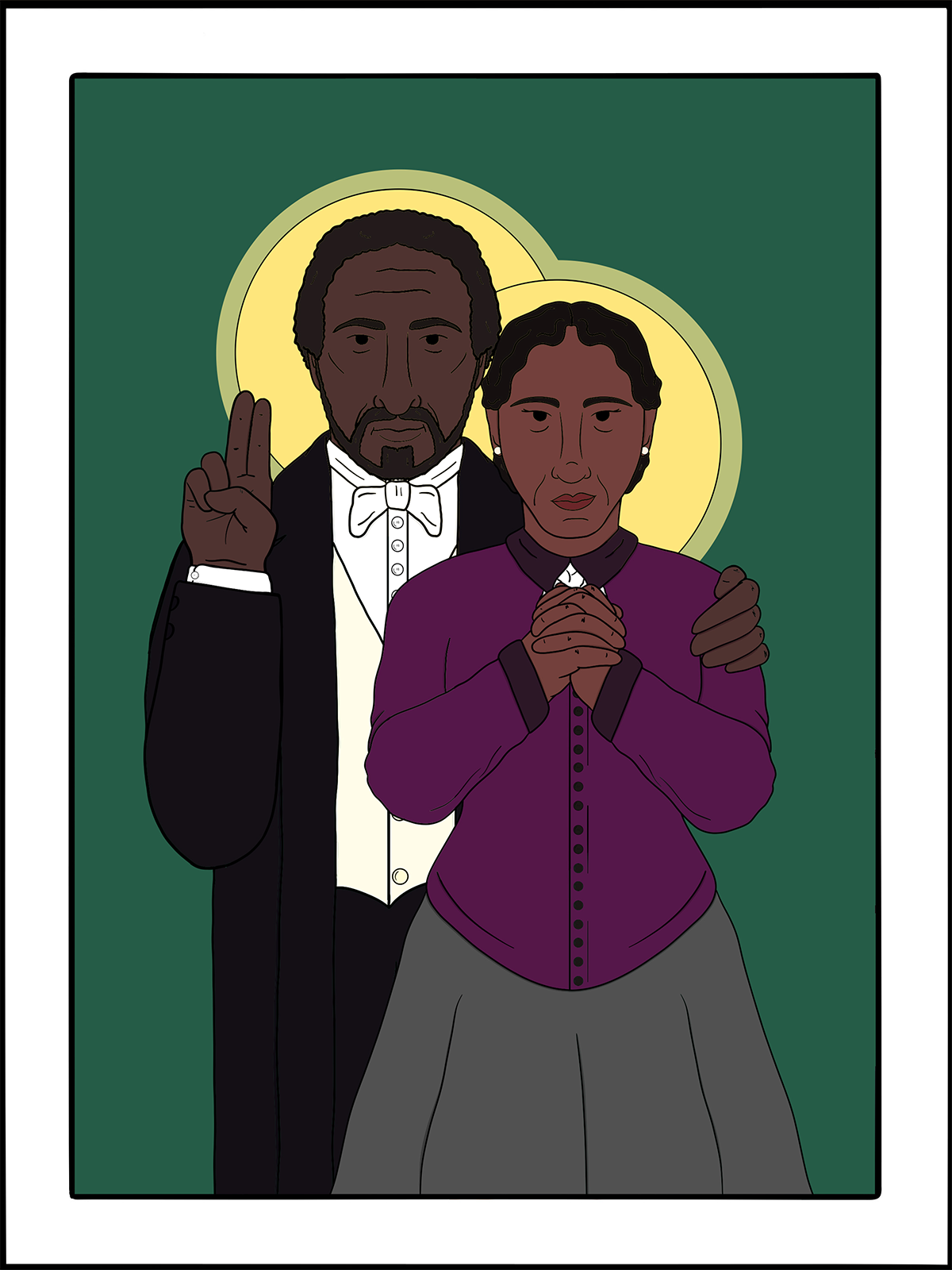
April 16
Peter and Anna Cassey
Deacon and Wife, 1917 & 1875
art by Rev. Kirsten Kohr of Uhrichsville, Ohio O God of justice and mercy, we remember before you your servants Peter Williams Cassey and Anna Besant Cassey, who, in the face of slavery and discrimination, gave the blessings of education and spiritual haven to the marginalized; Grant us to be fearless in the face of injustice and to work for blessings that will touch those whom the world does not count of value; through Jesus Christ our Lord, who with you and the Holy Spirit lives and reigns for ever and ever. Amen.
Peter Williams Cassey was ordained as a deacon in 1866, the first person of color ordained in the Episcopal Church west of the Mississippi River. He was a fourth-generation freed African American. His great-grandfather bought his freedom and founded the first Black church in New York, the African Methodist Episcopal Zion Church. His grandfather was the first African American Episcopal priest in New York and founder of St. Philip’s, Manhattan. His parents, Joseph and Amy Cassey, were prominent abolitionists in Philadelphia.
Peter received the best classical education available at the time, learning to read Greek, Hebrew, and Latin fluently. Arriving in San Francisco in 1853, he worked as a barber and formed an abolitionist group to help free slaves. He helped organize a community association to protect African Americans and other persons of color. In the late 1850s, he moved to San José, California.
Peter married Anna Besant, who came from another prominent African American family. They were among the founding members of Trinity Parish, San José, California, in 1861. At the same time, they rented the former Bascom School for Girls and established St. Philip’s Mission for Colored People and opened St. Philip’s Academy. The school was not only for African Americans, but also for Native American, Mexican, and Chinese students because no children of color could attend public schools.
Bishop William Ingraham Kip, first Bishop of California, recognized St. Philip’s as a mission congregation out of Trinity Church and in 1866 ordained Peter as a deacon. In 1872, Bishop Kip directed him to establish Christ Church for Colored People in San Francisco while Anna kept St. Philip’s going. Later this church would split into the African American Church of St. Cyprian and Christ Nippon Sei Ko Kai (Japanese American Episcopal Church). In 1881 Peter was called to St. Cyprian’s Episcopal Church in New Bern, North Carolina, as the first African American rector in that state. In 1884 he accepted a call to Florida where he served three parishes in succession until he died at the age of 86 on April 16, 1917. He was never ordained a priest because of the racism of the clergy and Standing Committees of the three dioceses in which he served, even though the bishops favored his ordination.
The Bishop of Florida, Edwin Gardner Weed, said at Peter’s funeral that “no other clergyman in the diocese came close to the theological maturity and scholarship that Peter Williams Cassey exhibited in his ministry and teachings. We should be proud of these great souls that helped lay the foundations of this diocese.”
Excerpted directly from “Lesser Feasts and Fasts 2022,” p. 192-193.
Lessons and Psalm Proverbs 22:1-9
Psalm 112
Matthew 5:13-16

